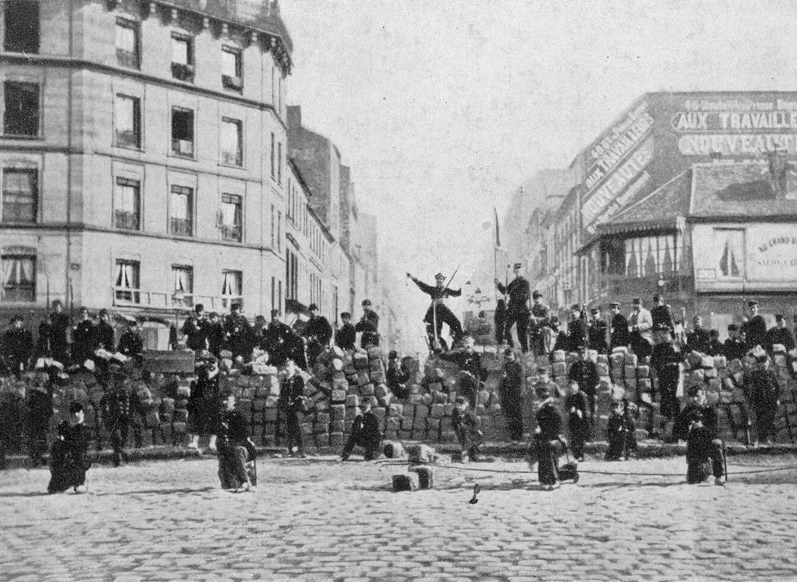The Paris Commune was a radical socialist and revolutionary government that formed in Paris on this day in 1871, existing for just a few months before being defeated by the French National Army on May 21st that year.
A hotbed of working-class radicalism, the Paris Commune was a watershed moment in revolutionary left history. A few months after it was formed, the commune was attacked and defeated by the French National Army on May 21st, 1871, beginning the so-called "Bloody Week".
The government of the Paris Commune developed a set of policies that tended towards a progressive, secular, and highly democratic social democracy, although its existence was too brief to implement these ideas. Among these policies were the separation of church and state, abolition of child labor, abolishment of interest on some forms of debt, as well as the right of employees to take over and run an enterprise if it was deserted by its original owner.
The Paris Commune was analyzed by many communist thinkers, including Karl Marx, who called it a "dictatorship of the proletariat." Vladimir Lenin danced in the snow in celebration when the newly formed Bolshevik government lasted longer than the Paris Commune.
The uprising inspired similar revolutionary attempts around the world, including communes in Moscow (1905), Petrograd (1917), Shanghai (1927 and 1967), and Seattle (2020).
If you ever want to make your own megathread, you can go here to reserve a spot! :xinternet:
Resources for Organizing your workplace/community :sabo:
Resources for Palestine :palestine-heart:
Buy coffee and learn more about the Zapatistas in Chiapas here :EZLN:
Here are some resources on Prison Abolition :brick-police:
Foundations of Leninism :USSR:
:lenin-shining: :unity: :kropotkin-shining:
Anarchism and Other Essays :ancom:
Remember, sort by new you :LIB:
Follow the Hexbear twitter account :comrade-birdie:
THEORY; it’s good for what ails you (all kinds of tendencies inside!) :RIchard-D-Wolff:
Come listen to music with your fellow Hexbears in Cy.tube :og-hex-bear:
Queer stuff? Come talk in the queer megathread!! :sicko-queer:
Monthly Neurodiverse Megathread and Monthly ND Venting Thread :Care-Comrade:
I love transgednerism

